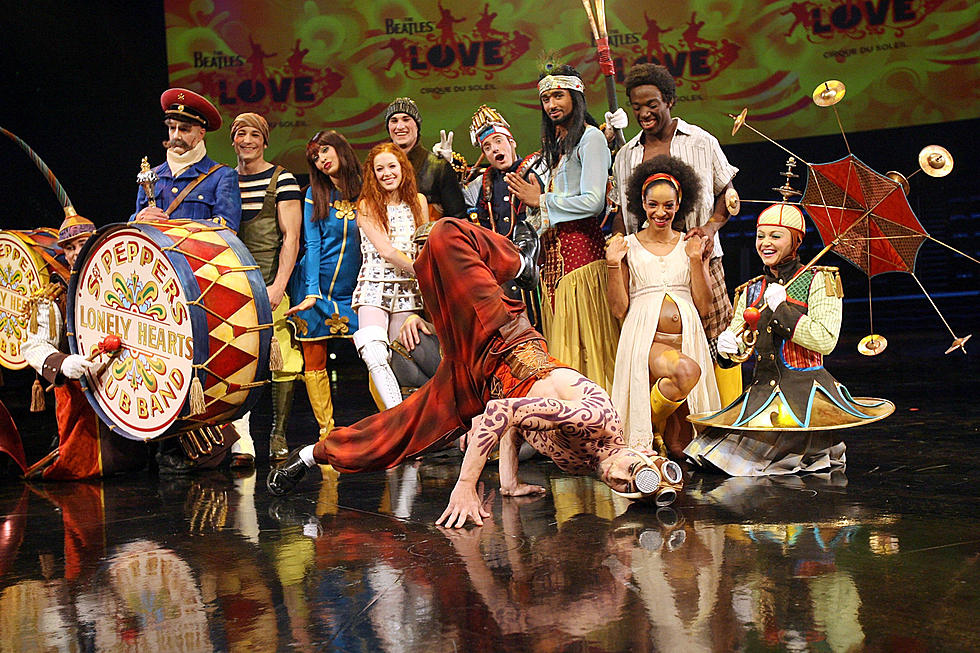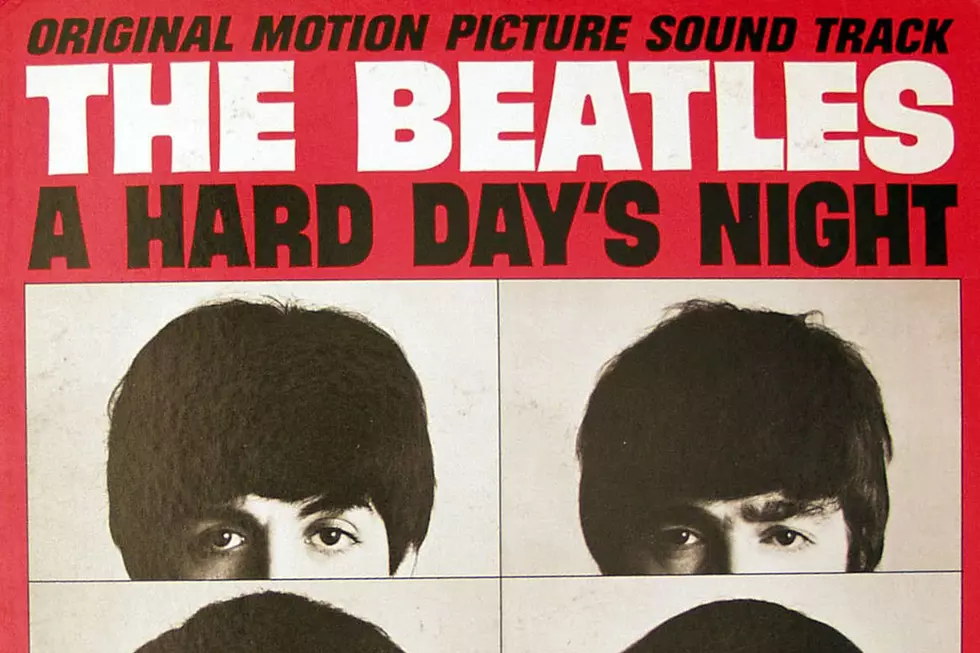
How a Deep Dive Produced the Beatles’ Revealing ‘Live at the BBC’
The Beatles regularly performed on BBC Radio from 1962-65, recording 88 different songs across 53 shows. Live at the BBC, a selection of 56 tracks from those sessions, was released on Nov. 30, 1994. A companion, On Air — Live at the BBC Volume 2, came out in 2013.
Among the high points are 30 songs never performed on their studio LPs, including the John Lennon-Paul McCartney original "I’ll Be on My Way." Lennon and McCartney sang most of the leads but George Harrison and Ringo Starr also contributed. There are 29 cover versions of Motown, rockabilly, R&B and rock tunes as well as banter between the group and the staid BBC hosts.
This was a time before the Beatles were lauded for groundbreaking albums like Rubber Soul and Sgt. Pepper’s Lonely Hearts Club Band or immersed in controversy for their political views and advocacy of drugs. They were simply a great live rock ‘n’ roll band.
BBC Radio producer Kevin Howlett unearthed the material for Live at the BBC. Many tracks came from the BBC archives but some were producers’ personal copies or off-air recordings made by listeners. Beatles producer George Martin made the final track selections based on sound quality and the performances.
In order to perform on the BBC the Beatles auditioned in early 1962 for producer Peter Pilbeam. His assessment back then: “Not as rocky as most. More country and western, with a tendency to play music.” Pilbeam's opinion of the two lead singers? "John Lennon – yes, Paul McCartney – no." Nevertheless, the Beatles passed the audition and debuted on BBC Radio in March 1962.
“They treated those sessions very seriously,” Howlett told MusicRadar. “What’s extraordinary about the recordings is, you can really hear a band hungry and desperate to do anything they could to make it. That meant traveling hundreds of miles through the night to appear at a BBC studio, because the BBC hardly played a record in those days – you had to perform live to get your music out there.”
Listen to 'I Feel Fine' From 'Live at the BBC'
Many of these archival recordings “were either live straight onto the air or live straight onto a mono tape machine,” Howlett said. “There was some primitive overdubbing for session tracks in late 1963 onwards to 1964 – not multi-tracking. It’s basically singing over the top or hand claps over what they’d just recorded. Most of it is absolutely live straight to mono.
“It does show what a wonderful live group they were and how they had the stamina to do so many live recordings in a short space of time in a BBC studio,” Howlett added. “There were times when they did 18 tracks in a single day, 19 tracks on another day.”
Even after they became international stars, the Beatles continued to appear make radio appearances. Live at the BBC includes Lennon-McCartney hits like "Ticket to Ride," "I Feel Fine," "She’s a Woman" and "A Hard Day’s Night," as well as cover songs picked from some of the best American artists: Elvis Presley, Chuck Berry, Little Richard, Buddy Holly and Ray Charles.
Many of the covers were learned during long nights playing in Hamburg, Germany and Liverpool’s Cavern Club, though the band included contemporary hits they’d rehearsed at Abbey Road. “Ringo said that they would go into the studio and experiment,” Howlett said. “During their lunch hour, they would learn two or three songs and try them out. You can tell that they’re experimenting with pretty current R&B hits. Things like ‘Chains’ or ‘You Really Got a Hold On Me,’ these were current hits when they recorded those tunes.
“They were so good at learning songs very quickly and rearranging them for their lineup. Some of the songs they were covering – those American rhythm and blues songs, Motown tunes, hits on Tamla – they were never heard in Britain. They were never on the radio,” Howlett told MusicRadar. “Even though the Marvelettes’ ‘Please Mr. Postman’ was an American No. 1, it was just not heard in Britain. So they were very clever to seek it out and find it, but they were also so adept at arranging it for themselves.
“The Beatles were so in love with American music,” Howlett added. “You know, British musicians thought that they could never measure up to American rock ‘n’ roll and rhythm and blues, ‘cause that’s where it all started, and the thought was that it must be in the blood and the DNA of the American musicians.”
Listen to 'I'll Be on My Way' From 'Live at the BBC'
Among the BBC highlights was "I’ll Be on My Way," a song the Beatles gave to Billy J. Kramer without recording a studio version. The Lennon-McCartney composition was the B-side of Kramer’s U.K. hit, a cover of the Beatles’ "Do You Want to Know a Secret." When the Beatles performed the song live, the charming ballad featured a McCartney vocal with tight harmonies by Lennon.
No one covers Little Richard with as much energy and appreciation as McCartney. It’s no wonder; Little Richard taught McCartney his signature “wooo” in Hamburg during a 1962 tour. On Live at the BBC, McCartney contributed wild versions of Little Richard's "Lucille," "Long Tall Sally" and "Ooh! My Soul!"
The Beatles were huge fans of the underrated soul singer Arthur Alexander. They recorded "Anna (Go to Him)" on their first album and performed "A Shot of Rhythm and Blues" and "Where Have You Been" on stage. Lennon showed his softer side here as he took the lead on Alexander's "Soldier of Love (Lay Down Your Arms)."
Their love of Chuck Berry is also evident on Live at the BBC, with Lennon taking the lead on seven Berry tunes. The highlights are an exuberant "Rock and Roll Music" and the laid-back "Memphis, Tennessee." Harrison gets in on the action with Berry's "Roll Over Beethoven."
Starr gets only two lead vocals but he obviously had a blast doing "I Wanna Be Your Man" and Carl Perkins’ "Matchbox." Of course, Perkins was a tremendous influence on the Beatles. Harrison’s love of rockabilly is on display with two Perkins’ tunes: "Glad All Over" and "Everybody’s Trying to Be My Baby." Lennon takes the lead on "Honey Don’t" (Starr would do the vocals for the studio LP), while McCartney covers "Sure to Fall (In Love With You)."
“You know, there’s such an edge to their performances on these recordings," Howlett observed. "As Paul McCartney says, they were playing ‘like their lives depended on it.’ They were in the moment, and when the light went on, they went for it. And they were really, really great.”
Top 25 Rock Producers
Foreigner, Styx and Don Felder Share Beatles Memories
More From Ultimate Classic Rock









